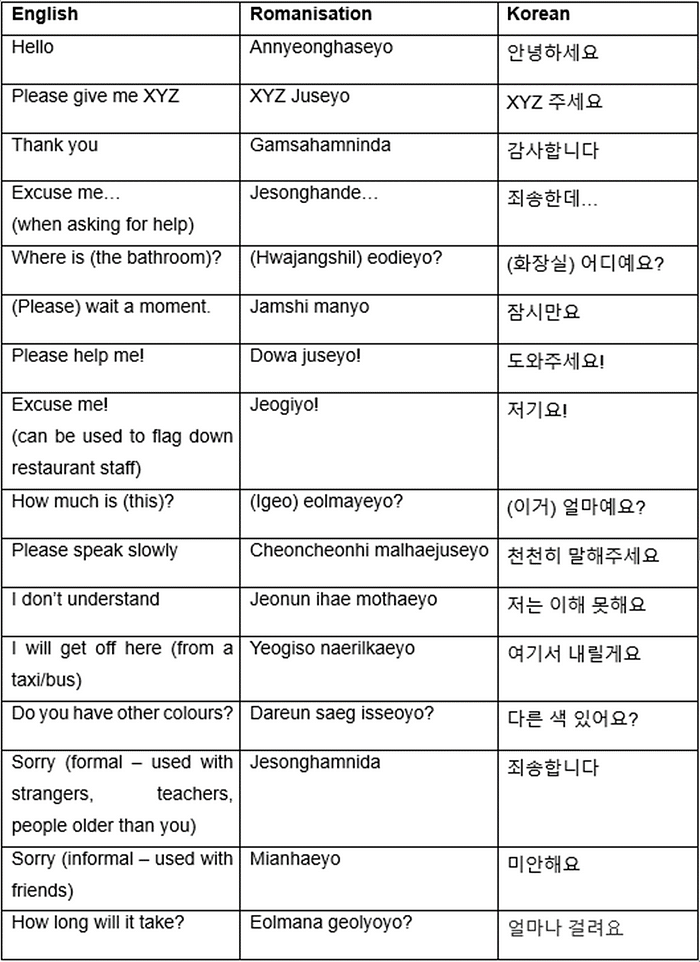Basic Korean Phrases for Travel
By Syeda from The Library Student Team
Hello! I’m Syeda from the Library Student Team. Last summer I attended the international programme at Seoul National University in South Korea. My good friend and fellow student team member Fariha will be travelling there soon and she has some questions. If you are interested in visiting Seoul, this post is for you! It contains information about some basic Korean phrases you may find helpful.

Fariha: What level of Korean language will I need?
Syeda: That depends. Of course, we’ve both been taking lessons with MUKSS this year and have been studying Korean for a few years already.
Fariha: Yeah, and I’ve taken the ones with The Language Society as well, they’re really good too!
Of course, don’t feel discouraged if you haven’t been studying Korean for long (or haven’t started yet!) as a little effort goes a long way! If you are visiting Seoul (South Korea’s capital city), most signs in popular tourist locations and subway stations will be in both Korean and English. Also, people are generally encouraging and supportive of tourists who try to learn simple and polite phrases in Korean.
(Please be aware that the romanisation/ transliteration of Korean words in this post is not a perfect representation of how to pronounce them in Korean, but most Korean people will hopefully understand what you mean and appreciate your effort).
The particle 요 (“yo”) is attached to the end of most Korean sentences to indicate politeness, even if it’s a one-word/ short sentence.
Here are 15 basic Korean words and phrases:

Top tip! Write your own personalised list of important words and phrases on paper. If you somehow end up stranded, unable to use your phone, and in a place without any English speakers, at least you can feel assured that you will still be able to get your point across.
Practise saying these words aloud. You can record yourself and compare your pronunciation to that of Korean speakers on YouTube and Instagram. Practice makes progress!
